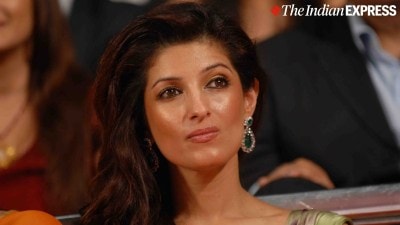Squashbuckling
FOR years, much like the four walls it8217;s played within, squash in India has been a sport that8217;s been restricted to an elite few ...

FOR years, much like the four walls it8217;s played within, squash in India has been a sport that8217;s been restricted to an elite few 8212; patrons of glitzy clubs in the metropolises and those in the services. A sport that never even tried to battle for column space in newspapers with cricket and hockey.
That was then. The current generation of players, through a combination of factors, have made sure that their achievements on the international stage get them their due recognition.
Ritwik Bhattacharya8217;s second consecutive Professional Squash players8217; Association PSA title in New Zealand last week has just capped what has been a terrific year for this generation:
8226; Chennai8217;s prodigious schoolgirl Joshna Chinappa became the first Indian to win the British Open title when she annexed the U-17 title in January
8226; Sixteen-year-old Sourav Ghosal, singled out this year by national coach Cyrus Poncha as the best medal prospect, became the first Indian to win the German Junior Open
8226; Deepika Pallikal, current U-13 national champion, was a surprise winner in the U-13 category of the German Junior Open.
For years after former National champion Arjan Singh, there were no Indians active on the PSA circuit that8217;s where the top stars hang out till Ritwik made a quiet entry two years ago. Currently ranked 91, his ranking is bound to improve 8212; to the 70s 8212; after his two PSA titles.
And now, thanks to the Squash Racquets Federation of India SRFI, three teenagers are turning professional. Chennai prodigy Ghosal, Mumbai8217;s Supreet Singh 18, who debuted on the PSA tour, and Joshna, who takes her first steps on WISPA Women8217;s International Squash Players Association tour. While the three are being sponsored in their first year by SRFI, another talented youngster, Delhi lad Gaurav Nandrajog 18 is digging into the prize money he earned ealier this year to pursue his PSA dream.
8216;8216;For an aspiring squash player, that8217;s the best way to hone your skills,8217;8217; says Poncha.
So what caused the turnaround? Most observers, and the juniors themselves, feel the rigorous training camps conducted at the behest of SRFI by Malaysia8217;s famed squash coach Major Maniam and Poncha earlier this year went a long way in getting the players into shape.
8216;8216;We put in about six to seven hours everyday prior to the Asian Junior Championships. The training regimen we followed also did a lot of good,8217;8217; recalls Nandrajog.
Maniam also feels that the structured approach to coaching has turned Chennai into a sort of production unit for the sport in the country. 8216;8216;Tournaments are held at the school level, from where we spot talent and put them through different levels at the ICL Squash Academy here in Chennai,8217;8217; said Maniam. 8216;8216;This helps in developing youngsters and moulding them into players of the future,8217;8217; he said. Deepika Pallikal is one such player.
Six-time national champion and Arjuna Awardee Raj Manchanda believes that one reason why the youngsters have been doing well is the fact that there are fewer layers to the sport here 8212; access to the big time, for those with talent, is easier. 8216;8216;There are no district-level tourneys that players have to deal with before they can get a shot at the nationals,8217;8217; he points out.
One issue that Indian squash players have to deal with is the US, which poses a peculiar problem. Every year, some of the country8217;s best talent is lost to prestigious Ivy League colleges, who offer them squash scholarships. Harvard, Princeton, Yale and current Collegiate champions Trinity College have Indians playing for them.
8216;8216;It is a risky proposition to just let your child pursue a career in squash in India. There8217;s not too much happening except at the top. But if squash becomes a means to let him have the best of education in the US, then why not?8217;8217; queries Manchanda. His son Anshul, a promising junior talent, got himself admitted at the prestigious Yale University in 2000.
Mumbai, a traditional hub of squash, seems to be badly affected with many of the city8217;s best talent studying abroad. Siddarth Suhde, a former national U-19 champion who led the Indian challenge at the Asian Juniors, is pursuing a degree overseas. Junaid Nathani, another promising junior and part of the junior India team, got himself a scholarship at New York8217;s Trinity College.
Poncha reckons that the SRFI8217;s initiative in sponsoring the youngsters on the professional circuit might stem the flow to a certain extent but not entirely. 8216;8216;It8217;s not practical. We can8217;t possibly assure that we can support them entirely,8217;8217; said Poncha. 8216;8216;But the people who were being sponsored assured us that they were not planning to pursue studies abroad for now.8217;8217;
For some like Ghosal, nothing, not even a scholarship, can be more inviting than representing the country. At just 16, he and Joshna were among the youngest Indian representation at the Busan Asiad last year. 8216;8216;Nothing betters that,8217;8217; says Ghosal.
- 01
- 02
- 03
- 04
- 05































